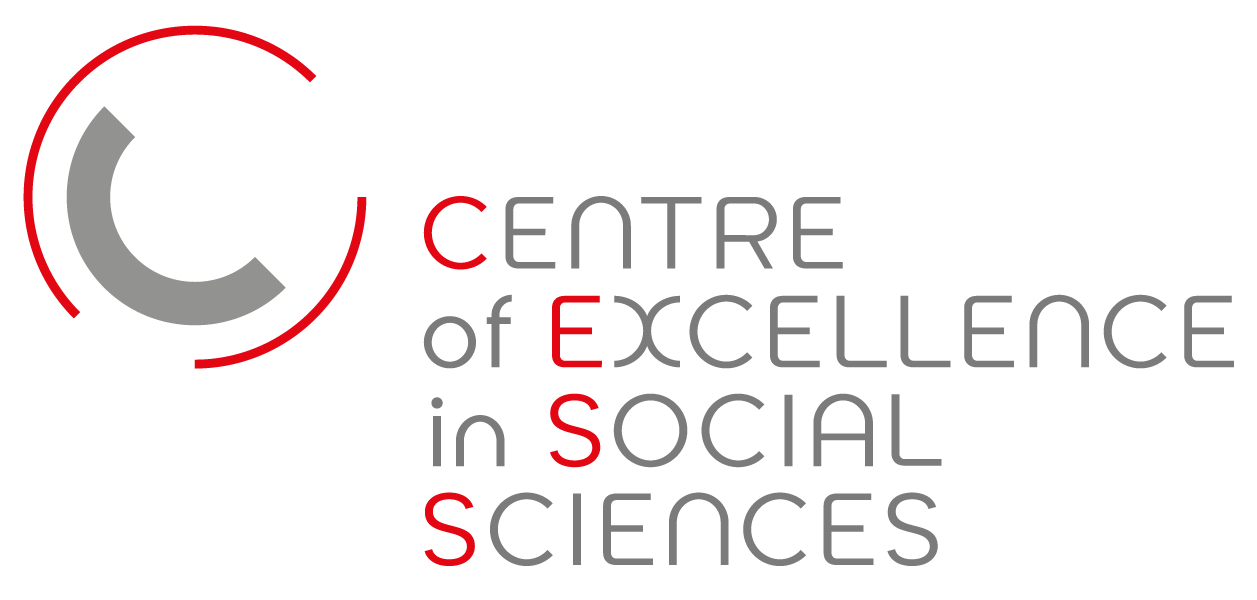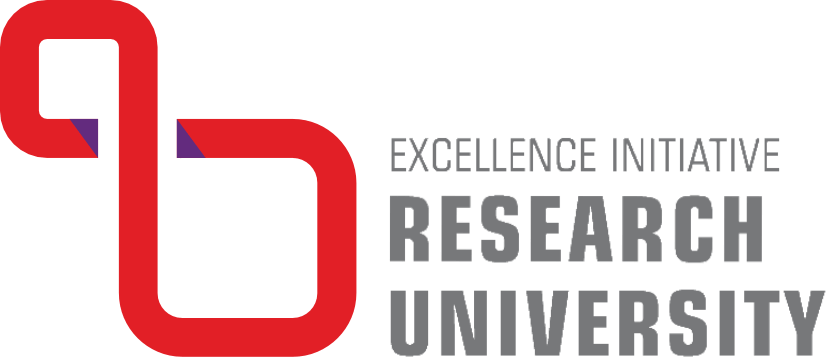People
Scientific Council
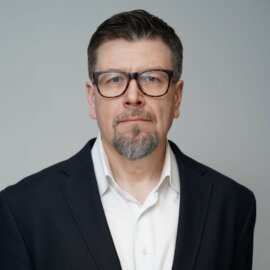
dr hab. Paweł Kaczmarczyk, prof. UW
Pawel Kaczmarczyk is a Professor at the Faculty of Economic Sciences (Chair of Population Economics and Demography), University of Warsaw and since 2016 the Director of the Centre of Migration Research.
Pawel Kaczmarczyk is associated with the Centre since 1997 when he was involved in the groundbreaking studies on Polish emigration (ethnosurveys) completed in several Polish regions. Currently, his main research interests include economics of migration (in particular: causes and consequences of international labour migration), migration and the labour market, and migration policies. He studies the migration realities and participates in the political debate on mobility (in the past he was a member of the Strategic Advisory Board to the Prime Minister of Poland).
He is a member or an affiliate of numerous bodies dealing with mobility and migration-related issues (e.g. Committee on Migration Research of Polish Academy of Science, IMISCOE) and he is cooperating with international organizations in the field (IZA, World Bank, OECD).
Since 2020, he is a member of the Management Committee of the Initiative for Excellence – Research University (IDUB) programme and coordinator of the Centre of Excellence in Social Sciences (CESS).
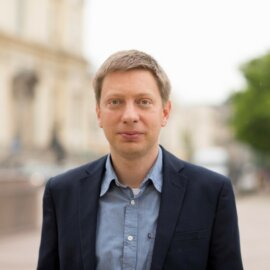

dr hab. Michał Bilewicz, prof. UW
Michał Bilewicz is a social and political psychologist. He works for the Faculty of Psychology at the University of Warsaw, where he is the head of the Center for Research on Prejudice. He specialises in the psychology of intergroup relations and the psychology of reconciliation.
His current research interests include hate speech, collective memory in post-conflict areas, and the role of the sense of personal control in human social functions. He led a Work Group on emotions related to reconciliation within European COST project IS1205.
He has authored numerous publications in the areas of social psychology (for the Journal of Personality and Social Psychology, Social Psychological and Personality Science), political psychology (Political Psychology), environmental psychology (Journal of Environmental Psychology), orthopsychiatry (American Journal of Orthopsychiatry), and memory studies (Memory Studies).
He has served as Vice-President of the Polish Association of Social Psychology and the Psychology Committee of the Polish Academy of Sciences (PAN) and was a member of the governing bodies of the International Society of Political Psychology. He is also Chair of the Scholarly Advisory Board of the Forum for Dialogue Foundation. In 2021, he was awarded the Nevitt Sanford Prize for research in political psychology.
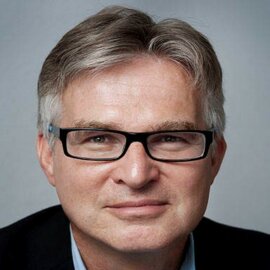
prof. Godfried Engbersen
Godfried Engbersen is Professor of Sociology at the Erasmus University of Rotterdam. Before, he worked at the universities of Leiden, Amsterdam and Utrecht, and as visiting professor at the Centre of Western European Studies at the University of California, Berkeley (spring 1996).
Engbersen is an internationally regarded specialist on issues of migration, integration and social inequality and has advised multiple national and international organizations. He is an elected member of the Royal Netherlands Academy of Sciences (KNAW). He was a Dutch correspondent for the continuous Reporting System on Migration (SOPEMI) of OECD (2001-2013). In 2014 he was appointed member of the Netherlands Scientific Council for Government Policy (WRR).
His current research activities focus on the social consequences of migration related diversity, migrant transnationalism, the intra-EU mobility regime, and changing urban social classes. He is now conducting a large scale longitudinal study on the social impact of COVID-19.
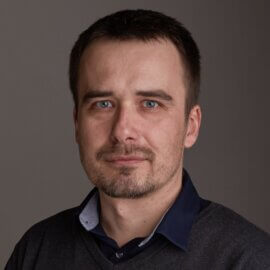
dr hab. Sławomir Mandes, prof. UW
Sławomir Mandes is a sociologist who works at the Department of Digital Sociology at the University of Warsaw. His interests concern the sociology of religion, local life, and digital methodology in the social sciences. His research in the sociology of religion concerns the process of secularization in Poland and Europe, and the relation between religiosity and other areas of social life. He is interested in the possibilities of using tools developed for Natural Language Processing (NLP) with Python for research in social sciences.
He has been involved with the European Values Survey (EVS) since its third edition. He is a member of PTS and the International Study of Religion in Eastern and Central Europe Association. Since 2020, he has been a member of the Advisory Board for the financing of international scientific cooperation in the Ministry of Science and Higher Education. He currently leads the international project "Transformations of the role of religion in societies after the COVID-19 pandemic", funded by NCN in cooperation with the Trans-Atlantic Platform (T-AP) for Social Sciences and Humanities.

prof. Renate E. Meyer
Renate E. Meyer is Professor of Organization Studies at WU Vienna University of Economics and Business. At WU, she is the Head of the Institute for Organization Studies and Co-Director of the Research Institute for Urban Management & Governance. Renate is also Part Time Professor in Institutional Theory Copenhagen Business School and holds visiting positions at Saïd Business School (Oxford University), University of Alberta and the University of Liverpool.
She is current Editor-in-Chief of Organization Studies and Past Division Chair of the OMT Division of the Academy of Management. She was an elected member of the EGOS Executive Board between 2008 and 2017 serving as Chair from 2011-2014.
Renate’s current research interests include the institutionalization of new management ideas and their translation into new cultural contexts, institutional renewal, unintended consequences of change initiatives, multimodality, collective action in crises, as well as governance structures and governance gaps mostly in urban contexts.
Renate has published in journals such as Academy of Management Journal, Academy of Management Review, Academy of Management Annals, Organization Studies, Organization Science, Journal of Management Studies, Strategic Organization, or Public Administration, Public Management Review, or Urban Studies.
For more information, see: https://www.wu.ac.at/en/orgstudies/staff-faculty/renate-e-meyer
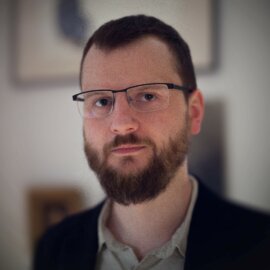
dr hab. Mikołaj Pawlak, prof. UW
Mikołaj Pawlak is associate professor of sociology at the Institute of Social Prevention and Resocialisation, University of Warsaw, where he serves as head of Chair of Sociology of Norms, Deviance and Social Control, and the Deputy Director for Research. He is a co-organizer of the seminar Nowy instytucjonalizm – teorie i badania [New institutionalism – theories and research].
Mikołaj Pawlak’s research interests cover new institutional theory, migration studies, and sociology of knowledge. In the book he recently co-authored Ignorance and Change he analyzes the refugee crisis from the perspective of ignorance studies. In his previous book Tying Micro and Macro he critically discusses the thesis on the sociological vacuum and presents it in the context of the debate on the micro- and macro-levels in sociological theory. His previous book Organizacyjna reakcja na nowe zjawisko [Organizational Response to a New Problem] applies the new institutional perspective in organization studies to the problem of emerging policies of refugees integration in Poland.
Mikołaj Pawlak graduated from sociology at the University of Warsaw in 2004 (the MA thesis was supervised by prof. Jarosław Kilias) and completed his PhD thesis under the supervision of prof. Joanna Kurczewska at the Graduate School for Social Research, Polish Academy of Sciences, in 2011. In 2019 he received a habilitation from the Faculty of Applied Social Sciences and Resocialisation at the University of Warsaw.
He gained research experience by engaging in the studies of the Research Group of Sociology and Anthropology of Culture at the Institute of Philosophy and Sociology of the Polish Academy of Sciences (2004-2011), by working as a researcher and analyst at various studies focusing on migration conducted by the Institute of Public Affairs (2004-2010), and as a Head of Research Group at Caritas Polska (2009-2012).
Membership in editorial boards: Journal of East European Management Studies | Stan Rzeczy. Membership in scholarly associations: Polish Sociological Association [Vice–President] | European Sociological Association | European Group for Organizational Studies | Society for the Advancement of Socio-Economics.
Civic involvement: The Foundation for Social Diversity [member of the Supervisory Board].
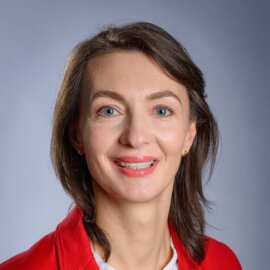
dr hab. Maria Theiss
Maria Theiss is a political scientist and social policy researcher. She works in the Department of Methodology in Policy Research at the Faculty of Political Science and International Studies at the University of Warsaw. She specialises in the area of the relationship between social benefits and political participation. She researches informal practices and public discourse in social policy, and analyses the inequalities in social citizenship, as well as beliefs about the worthiness of different groups for state support. She is the editor-in-chief of the academic journal Social Policy Issues. She has led research teams in international projects on citizens’ trust in the State (the EnTrust project), international social solidarity (the TransSOL project), and how citizens cope in times of crisis (LIVEWHAT). She has authored publications in journals such as Journal of Social Policy, Acta Politica, and European Journal of Social Work.
m.theiss@uw.edu.plAffiliated researchers
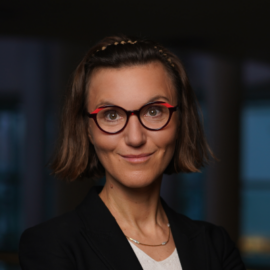
prof. Magdalena Wojcieszak
Magdalena Wojcieszak (Ph.D. U. of Pennsylvania) is a Professor of Communication at UC Davis, a Researcher at the U of Warsaw, Poland (PI ERC Consolidator NEWSUSE), an Affiliate Faculty in Computational Social Science, and a Member of the Graduate Group in Computer Science at UC Davis. Previously, she directed ERC Starting Grant EXPO at the U. of Amsterdam (2018-2023). Prof. Wojcieszak examines how people select (political) information online, the effects of digital media on extremity, polarization, and (mis)perceptions, and algorithmic interventions to increase recommendations to and consumption of verified political contents. She has (co-)authored ~90 articles (incl. Science, Nature, Science Advances, PNAS), is the Associate Editor of Political Communication, is part of the U.S. 2020 Facebook & Instagram Election Study and the Misinformation Committee at the Social Science One. She has received awards for her teaching and research (including being elected the Fellow of the International Communication Association).
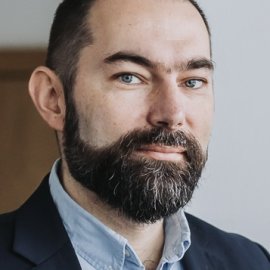
dr hab. Dominik Batorski
A sociologist and data scientist who combines academic work at the Interdisciplinary Centre for Mathematical and Computational Modelling (ICM) at the University of Warsaw with consulting, public outreach, and business activities. His academic research focuses on the social and economic transformations driven by the proliferation of information and communication technologies and the development of artificial intelligence. He teaches courses on computational social sciences, data science, and value creation based on data and AI at the University of Warsaw, as well as in postgraduate programs at Kozminski University and Warsaw University of Technology.
As an expert, he has repeatedly advised governmental and local administration units and has led the preparation of numerous analytical reports and expert opinions. Currently, he supports NASK-PIB in developing analytical solutions that will aid public administration in developing evidence-based public policies. He is a member of the Council of the Polish Economic Institute and the chair of the Council of the Public Opinion Research Center (CBOS).
He co-founded Sotrender, a company that develops analytical tools and machine learning solutions for social media marketing. He is an active leader in the data science and machine learning community—since 2014, he has organized the Data Science Warsaw meetups and chairs the Program Council of the Data Science Summit conferences.
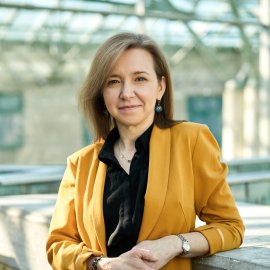
dr hab. Natalia Letki
Dr hab. Natalia Letki holds a DPhil from Nuffield College, University of Oxford (2002), where she subsequently was a Post-doctoral Prize Research Fellow (2002-2005). Since coming to Poland in 2005, she has run numerous research projects, including ERC StG 240830 “Public Goods through Private Eyes. Exploring Citizens’ Attitudes to Public Goods and the State in Central Eastern Europe” (PI, 2009-2014), PROVIDE: PROVIding smart DElivery of public goods by EU agriculture and forestry, Horizon2020 Programme (Country Coordinator for Poland, 2015 – 2018), Foundation for Polish Science ‘Idee dla Polski’ grant (PI, 2009 – 2014).
She has trained as a sociologist, but her research falls at the intersection of sociology, political science and psychology, as she researches attitudes and behaviour towards public goods, including tax and pro-environmental behaviour and co-production, as well as social capital, social trust and corruption. She also has an extensive experience in research on ethnic minorities, and party policy and electoral strategy in post-Communist countries. She is particularly interested in the conditioning effect of social and spatial context.
Methodologically, she specializes in quantitative survey research, including survey experiments. She is widely experienced in working with cross-national survey data, including survey design and implementation.
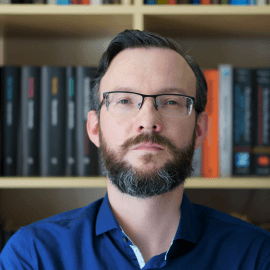
dr hab. Paweł Matuszewski
Pawel Matuszewski is a habilitated doctor of sociology and a university professor at Collegium Civitas.
His research focuses on identifying causal relationships between the level of action taken by individuals and social phenomena. He is particularly interested in the mechanisms of formation and spread of political beliefs and behaviours in cyberspace. His latest research focuses on politically-oriented conspiracy theories, as well as methods of countering the spread of false information through digital media.
Prof. Matuszewski is the author of the monograph “Cyberplemiona. Analiza zachowań użytkowników Facebooka w trakcie kampanii parlamentarnej (Cybertribes. An analysis of Facebook users' behavior during the parliamentary campaign)” (2018, PWN Scientific Publishers), “Logika przekonań społecznych (The Logic of Social Beliefs)” (2017, UKSW), and dozens of articles on the sociology of politics, the sociology of the Internet, the sociology of public opinion, and social research methodology. He has participated in academic and commercial research projects, including those for consulting firms, research institutions, academic institutions, businesses, trade unions, and political parties.
Pawel Matuszewski is an active member of the Polish Sociological Society (Chairman of the Board of the Warsaw branch, 2018-2022) and the European Sociological Association.
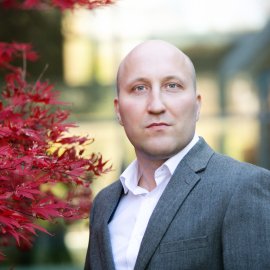
dr Ivan Kozachenko
Ivan Kozachenko is a sociologist. He holds a Researcher position that is attached both to the Centre of Excellence in Social Sciences and the Centre of Migration Research, University of Warsaw. Dr Kozachenko’s areas of specialisation include the study of diaspora and nationalism, post-Soviet societies, cultural memory, and the role of social media in shaping identities and the sense of belonging. His current research project investigates the interplay between new media use and integration of Ukrainians with a temporary protection status in Poland. Prior to arriving in Warsaw, Dr Kozachenko held research positions at Jagiellonian University, University of Cambridge, and University of Alberta. He received his PhD in Sociology from the University of Aberdeen (Scotland). Dr Kozachenko’s publications appeared in Nations and Nationalism, Communist and Post-Communist Studies, European Studies, and East/West: Journal of Ukrainian Studies.
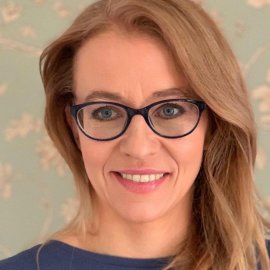
dr Dominika Pszczółkowska
Political scientist and migration researcher. Assistant professor at the Centre of Migration Research, University of Warsaw. Previously Assistant professor at the Faculty of Political Science and International Studies, University of Warsaw. Her research interests revolve around post-accession migrations, the political participation of migrants, migration and integration policies, labour migration. Before joining academia, she was a reporter for Polish media, especially “Gazeta Wyborcza” daily, where she covered European affairs, including as the paper’s Brussels correspondent.

dr Adi Weidenfeld
Adi Weidenfeld is an assistant professor at the University of Warsaw's Centre of Excellence in Social Sciences. His research focuses on knowledge networks, regional innovation ecosystems, and regional innovation systems at both regional and interregional levels, as well as the role of human agency in regional development and the visitor economy. Adi has extensive experience as a senior lecturer in the UK and completed a post-doctoral Marie Skłodowska-Curie fellowship in Finland. Currently, he is leading two nationally funded research projects as the principal investigator. His research interests include visitor attractions within the economic geography framework and regional science and innovation in the context of cross-regional collaboration. He also explores the role of geopolitics in shaping these mechanisms.
read more…
Scholarly papers
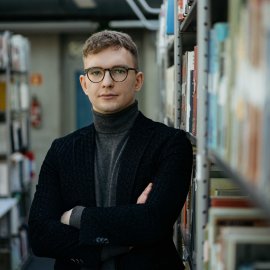
Artem Graban
Artem Graban is a PhD student in the UW Doctoral School of Social Sciences He obtained a master degree in Security Studies from the Military University of Technology in Warsaw. He stayed as a guest researcher at the WZB Berlin Social Science Center and the University of Sarajevo. His research focuses on critical approaches to international security and identity-related constructs and power relations in politics.
Research manager
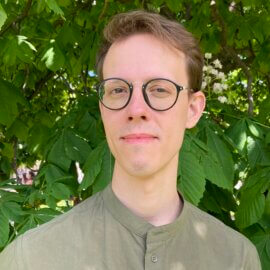
Adam Suwiński
Adam Suwiński is a research manager at the University of Warsaw, who is responsible for coordinating work in Priority Research Area (POB) V of the "Excellence Initiative - Research University" (IDUB) Programme and in the Centre of Excellence in Social Sciences.
Previously, he worked at the Department of Knowledge Management and the Department of Research and Development at the Adam Mickiewicz Institute, where he was responsible for evaluations, conducting and commissioning research, and cooperating with foreign partners in the area of exchanging good practices; he also worked for the Kultura Liberalna Foundation as a project and financial coordinator.
He is a sociologist by education.
